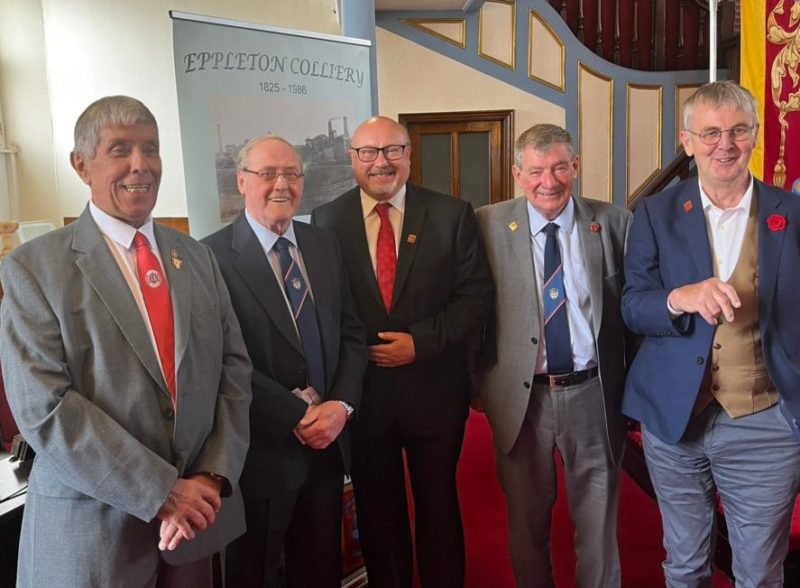Grahame Morris MP Working for Easington
We will remember those who toiled in the darkness, so we could live in the light. Grahame Morris MP

I am honoured every year to be invited to the Miners Memorial Service the Sunday before Durham Big Meeting.
The service is an opportunity to remember those who worked in the mining industry, the men who gave their lives in disasters and through ill health. Our communities powered the nation through the industrial revolution, two world wars, and helped to rebuild Britain in the post-war era.
Durham coalfield communities are owed a debt of honour by the nation, we were the foundations on which our economy and society were built for near 200 years. Men, women and children lost their lives, working in unimaginable conditions, in return for a wage that barely allowed them to exist, much less live. Poverty and hardship were features of our communities for many years, and conditions and wages were only improved through the organisation and collective struggle of miners and the Trade Union Movement.
We will remember those who toiled in the darkness, so we could live in the light. They are the communities and trade unions represented on the miners’ banners that we will march behind with pride this Saturday.
The solidarity and comradeship forged underground, create the tight-knit communities characterised by full employment, dignity, respect and hard work.
On Sunday, I remembered those close to me, my father and grandfather, whose lives were cut short due to industrial disease. On Saturday, Durham Big Meeting is a celebration of our culture, mining heritage and history. As a son of Murton, this year will be particularly special as the new Murton Banner will be blessed in Durham Cathedral.
The banner is beautiful, with timeless messages. Forged in the Past, Led into the Future, we remember those who went before and made the ultimate sacrifice in mining and war. The picture of the cenotaph and the banners of the past, honouring working-class heros, like Nye Bevin, NHS Founder, and Thomas Hepburn, founder and leader of The Colliers’ United Association of Durham and Northumberland, the first miners’ trade union.
A successful strike in 1831 led to a reduction in working hours from 18 hours to 12 hours a day, for children under the age of 12. The coal owners would fight back, destroying the union and blacklisting union leaders.
There are no final victories, our rights at work are only as strong as the people willing to fight for them. The Labour and Trade Union Movement have secured every advance and improvement to the lives and conditions of working people, which is as true today as it was over 100 years ago.
